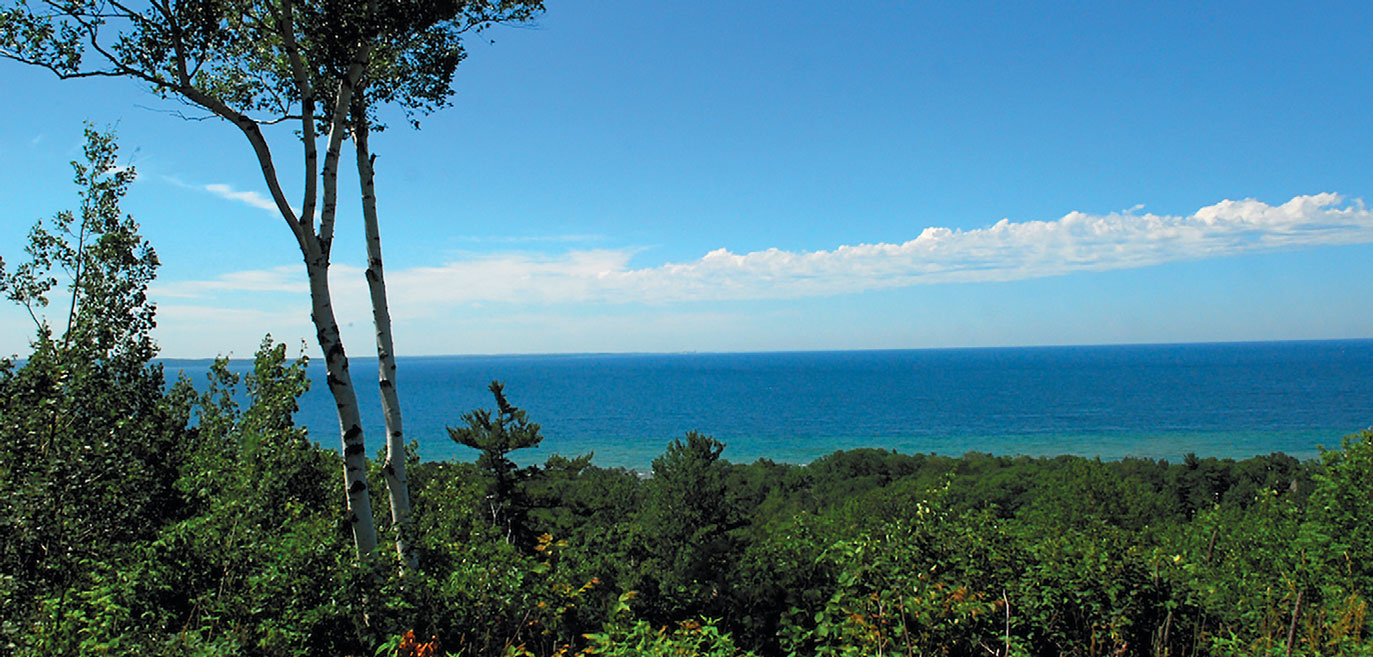On Being Of a Place
At the annual Northern Michigan Small Farm Conference and Farm School, folks gather every winter to delve into learning what it takes to produce good food. It’s a time and place that growers, consumers, teachers and advisors can attend workshops and, just as importantly, find inspiration for the work of building their community foodshed, bushel by farm by grocery cart by school lunch by dinner table. The 2017 keynote was delivered by Bill Palladino, a workhorse in the pull to get ever more local foods into the marketplace and to the hands of local eaters. He shares with us a bit of his talk and some musings on the essence of place.
When people ask me where I’m from, I tell them without hesitation that I’m from the Bronx, New York. The answer throws many people off balance, because I have long since lost the coarse phonic cues that would make it easy to guess my origins. I have now assimilated the softer sounds and gestures of my Midwest home.
The query “Where are you from?” is, after all, one of the most common questions asked of strangers. It begs for a reference—the first waypoint on a journey to understand who someone is. It pokes at the corners of our private lives, hoping to unearth rich veins of perception. But the fact is the answer cannot reveal much beyond the surface of a stereotype.
I’ve come to realize that although I hail from New York, that fact does little to tell you who I am. In essence, the answer conveys only a moment in time or an accident of birth. But no one asking this question is looking for a set of map coordinates. What the questioner is trying to ascertain is, “What community made you?” Or more precisely, “What is it that you’re made of?”
These days, I respond with a new phrase. I still say that I’m “from” New York, but after living in Northern Michigan for 26 years I can also say with conviction that now “I am of this place.” It’s a subtle shift that adds depth of meaning to the response.
From a purely scientific perspective, it takes the average human body between seven and 15 years to completely regenerate all of its cells. That includes our skin, organs, blood cells, bones and even our brain cells. There are a few exceptions to this truth, but like it or not we get what amounts to a new body every decade and a half.
It doesn’t require dieting or going to the gym or competing in a marathon. Biologists call it regeneration, and it’s the primary facilitator of resiliency in our bodies and elsewhere in the natural world. It’s what allows us to recover, reposition, deepen our roots and rise up stronger than we were before.
What feeds this fascinating power of regeneration? We do! Our cells are made up entirely of the food we give our bodies. What we eat literally becomes us. And as the food we eat comes from the earth, then it is the earth of which we are made. Ever so slowly, we have remade ourselves from the place or places where our food is derived.
Paradoxically, we can be from one place but simultaneously of another. While I’m proud to be from New York, I’m happy that I’m no longer of that immense and crowded city. My decades of residence here in Northern Michigan—along with the food choices I’ve made—ensure that the fields, forests, clean air and fresh water of this new home largely contribute to my being. I am of this place.
But it’s not that simple for everyone. Many people don’t have access to the same quality food that I do. Some might have access but don’t know it’s there. Others make it a choice to reach for the cheaper products or those with familiar national brands. But more and more people are beginning to understand and identify good-quality local food, and they are stopping to consider it.
Those of us who’ve already made such a choice can celebrate. Due to the act of settling in here, eating the food, drinking the water and breathing the air, we are now inexorably—dare I say it?—pure Michigan. How pure is up to you.
For we are all made of water, earth and air. And that sustenance finds its way into our cells, pushing out the old, the poison, the broken and the stale, in a constant process of renewal. It is said, “You are what you eat,” but I think it more accurate to say “You are of what you eat and drink and breathe.”
We have the opportunity then to be not unlike a bottle of fine wine. Our roots can be from one place, but it is where we plant ourselves that gives us our identifiable character. If I imagine myself to be that bottle of wine, I hope the day my vintage is uncorked, the sommeliers of the time will say, “This bottle cellared well but above all the terroir is unmistakable. With hints of maple, apple, cherry and beaches, essences of farmers’ markets, food trucks, fresh peaches and bike races. It finishes with muskiness reminiscent of the Cherry Fest beer tent after a Wednesday night in July.”
Mahatma Gandhi is known to have said, “Our greatness lies not so much in being able to remake the world, but being able to remake ourselves.” I am grateful to live in a place that provides me so many opportunities to remake myself in this way. So now, when someone asks me where I’m from, I respond resolutely, and with a particular pride, “I am from New York, but I am of Northern Michigan.”





